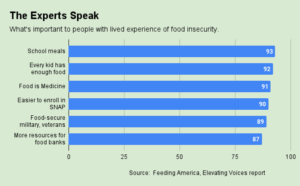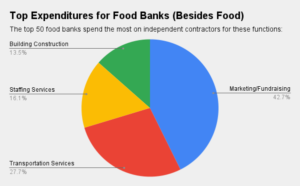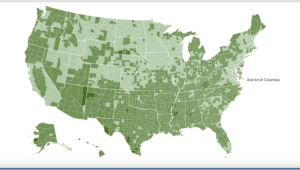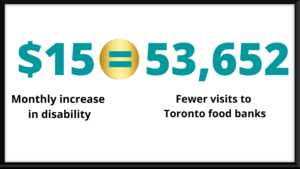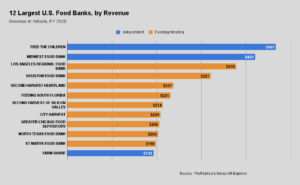Obesity in America is getting worse, and is particularly severe among low-income populations, underscoring the importance of emphasizing nutrition in charitable food programs.
The latest statistics related to obesity, released last week by Trust for America’s Health, show that nine U.S. states had adult obesity rates above 35% in 2018, up from seven states that did in 2017. As recently as 2012, not a single state had an obesity rate that high. “These latest data shout that our national obesity crisis is getting worse,” said John Auerbach, President and CEO of Trust for America’s Health.
Among low-income populations, the problem is even more pronounced, raising the stakes for charitable food providers to source and distribute nutritious food. Drawing upon 2011-2014 data from the National Health and Nutrition Examination Survey, the Trust for America’s Health noted in its report that the population living just above the federal poverty line had an obesity rate of nearly 43%. That compared to just under 30% for those with incomes at or above 400% of the federal poverty line.
Obesity is a harbinger of a range of diseases, including type 2 diabetes, high blood pressure and heart disease. It costs billions in extra annual medical expenses, and billions more in lost productivity and premature mortality.
A glimmer of good news came from the report’s noting that adding healthier items to WIC food packages resulted in a steady decline in obesity rates (from 16% to 14%) for children aged two to four enrolled in the program between 2010 and 2016. The report also noted that taxes on sugary drinks in Philadelphia (the largest city to have such a policy) led to significantly decreased purchases of sugary drinks.
Trust for America’s Health advised building upon these positives by expanding WIC to include six-year-olds and using excise taxes to increase the price of sugary drinks. Among other initiatives, it advised making access to nutritious food a core tenet of SNAP, and instituting policies that would make it easier for more kids from low-income families to participate in federal school lunch and breakfast programs.

